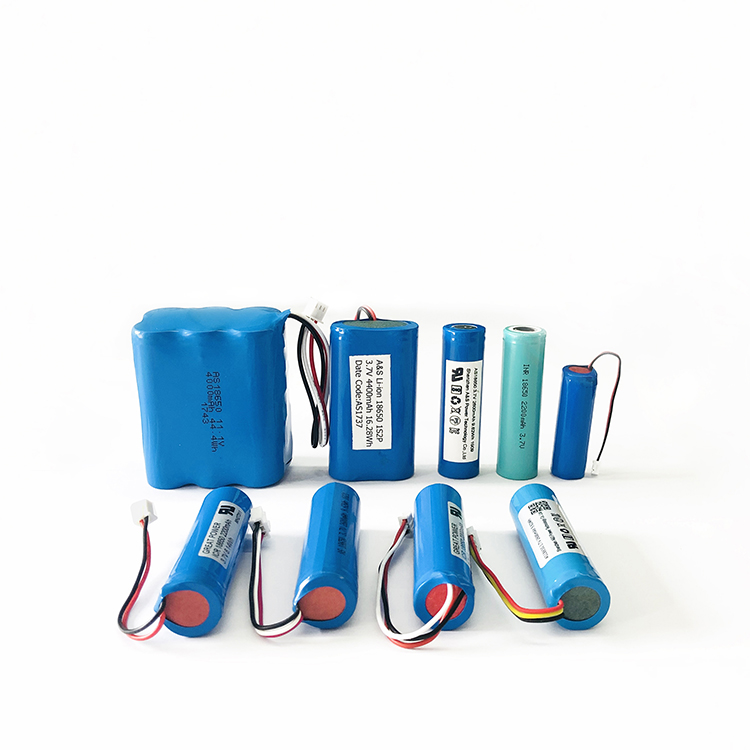With China ramping up spending on infrastructure construction to revive its economy, industry observers expect the country’s demand for lithium-iron-phosphate batteries for use in energy storage to ri
With China ramping up spending on infrastructure construction to revive its economy, industry observers expect the country’s demand for lithium-iron-phosphate batteries for use in energy storage to rise in 2020, driven by an accelerated installation of base stations for 5G networks.
To cushion the economic fallout of the coronavirus outbreak, China has pledged to accelerate the construction of new infrastructure projects across the country, ranging from 5G base stations and new light rail systems to data centers and electric-vehicle charging stations. According to an estimate by the China Academy of Information and Communications Technology, a government think tank, investment in 5G networks will amount to 1.2 trillion Chinese yuan in the next five years.
So far this year, China’s three biggest telecommunications carriers — China Mobile, China Telecom and China Unicom — have already issued more tenders for lithium-iron-phosphate battery procurement for 5G base station construction and battery upgrades for old 4G base stations than in previous years. The overall demand in China for batteries from such procurement is estimated to rise to 10 GWh this year, according to Shenzhen-based battery consultancy Gaogong Industry Research Institute.
According to a March report by brokerage Haitong Securities, 1 kilowatt-hour of a lithium-iron-phosphate battery, a type of lithium-ion battery, contains about 0.6 kilograms of lithium carbonate.Batteries serve as energy storage in telecommunications base stations. In the past, lead-acid batteries were widely used in the base stations for 4G networks, but lithium-iron-phosphate batteries have been seen as a better alternative in recent years due to their better performance and longer life of service, Mo Ke, lead lithium analyst of RealLi Research in Beijing, said in an interview.
“The electricity consumed by a base station of a 5G network is about three times that of a 4G base station, so 5G base stations need more backup power from their batteries. ... The telecommunications companies are also replacing the lead-acid batteries used in old base stations with lithium-iron-phosphate batteries,” Mo added.
Mo also said 5G networks require more base stations than 4G networks to maintain stable signals, and the rollout of 5G networks will bring much more demand for lithium-iron-phosphate batteries in the next few years.
Laying the foundation for the next-generation networks, the country’s telecommunications operators aim to build 600,000 5G base stations by the end of this year, according to the Ministry of Industry and Information Technology. As of 2019, China has 5.44 million 4G base stations, official data shows.
Lithium-iron-phosphate batteries are also used in electric vehicles, but the growth in demand from 5G infrastructure construction is much smaller than the decrease in demand caused by the slowdown in the EV market, analysts said.
To cushion the economic fallout of the coronavirus outbreak, China has pledged to accelerate the construction of new infrastructure projects across the country, ranging from 5G base stations and new light rail systems to data centers and electric-vehicle charging stations. According to an estimate by the China Academy of Information and Communications Technology, a government think tank, investment in 5G networks will amount to 1.2 trillion Chinese yuan in the next five years.
So far this year, China’s three biggest telecommunications carriers — China Mobile, China Telecom and China Unicom — have already issued more tenders for lithium-iron-phosphate battery procurement for 5G base station construction and battery upgrades for old 4G base stations than in previous years. The overall demand in China for batteries from such procurement is estimated to rise to 10 GWh this year, according to Shenzhen-based battery consultancy Gaogong Industry Research Institute.
According to a March report by brokerage Haitong Securities, 1 kilowatt-hour of a lithium-iron-phosphate battery, a type of lithium-ion battery, contains about 0.6 kilograms of lithium carbonate.Batteries serve as energy storage in telecommunications base stations. In the past, lead-acid batteries were widely used in the base stations for 4G networks, but lithium-iron-phosphate batteries have been seen as a better alternative in recent years due to their better performance and longer life of service, Mo Ke, lead lithium analyst of RealLi Research in Beijing, said in an interview.
“The electricity consumed by a base station of a 5G network is about three times that of a 4G base station, so 5G base stations need more backup power from their batteries. ... The telecommunications companies are also replacing the lead-acid batteries used in old base stations with lithium-iron-phosphate batteries,” Mo added.
Mo also said 5G networks require more base stations than 4G networks to maintain stable signals, and the rollout of 5G networks will bring much more demand for lithium-iron-phosphate batteries in the next few years.
Laying the foundation for the next-generation networks, the country’s telecommunications operators aim to build 600,000 5G base stations by the end of this year, according to the Ministry of Industry and Information Technology. As of 2019, China has 5.44 million 4G base stations, official data shows.
Lithium-iron-phosphate batteries are also used in electric vehicles, but the growth in demand from 5G infrastructure construction is much smaller than the decrease in demand caused by the slowdown in the EV market, analysts said.
Helen Lau, a commodity analyst at Argonaut Securities, said China’s EV sector, which dominates the global lithium-ion battery market, needs more than 5G construction for a revival. In addition, the coronavirus outbreak is expected to continue to weigh on the industry.



Leave A Comment